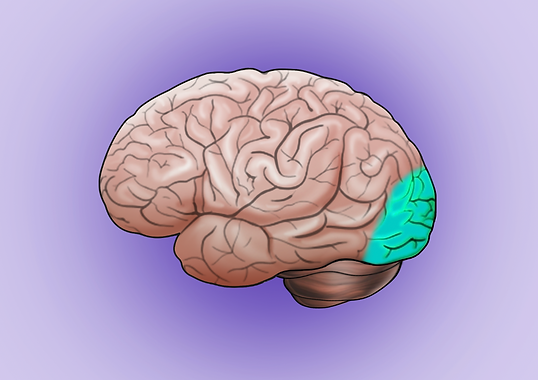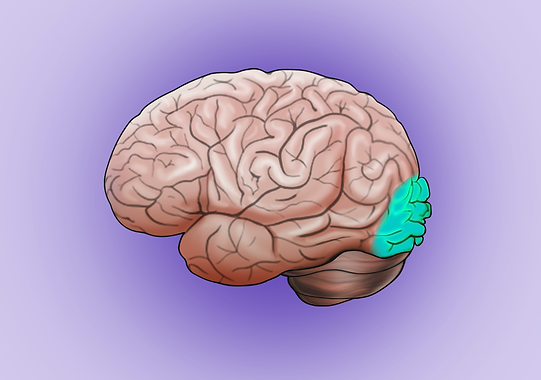Posterior Cortical Atrophy
Posterior Cortical Atrophy (PCA) is a rare cause of dementia that involves the same pathology as Alzheimer's disease. The progression of the condition varies from Alzheimer's disease, as it begins in the area of the brain concerned with vision located in the posterior area of the brain. Alzheimer's disease begins in the area concerned with memory.

(atrophied)

Occipital Lobe
Hover over image to view effects of PCA
The area of the brain that is mainly affected in the early stages of PCA is called the posterior visual cortex. This is located in the posterior area of the occipital lobe of the brain. Subtle changes to vision are often early symptoms of PCA and visual challenges increase as the condition progresses.
Issues with thinking and memory may not develop until the later stages of the condition. However, people living with PCA may experience difficulty with reading, writing, spelling and arithmetic. Visual challenges are the most distinct symptoms of PCA. Difficulty with recognising faces, judging distances and spatial awareness can be frightening, negatively impacting daily activities for people living with PCA and their families.

Further resources
Symptoms of Alzheimer's Disease - Alzheimer's Society
Atypical Alzheimer's Disease - Alzheimer's Society
What is Posterior Cortical Atrophy? - Alzheimers Research UK
Posterior Cortical Atrophy - Alzheimer's Association
Do I see what you see? A film about dementia, disconnection and seeing the world differently - Created out of Mind

